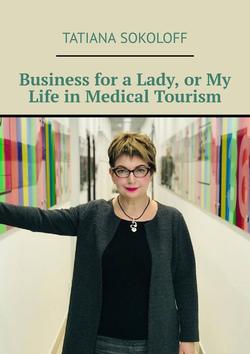Читать книгу Business for a Lady, or My Life in Medical Tourism - Tatiana Sokoloff - Страница 4
Chapter One. Introduction: Medical Tourism – How It All Began…
ОглавлениеMedical tourism refers to the practice of providing medical services outside the patient’s home system – in another region or in another country. Often, it involves traveling abroad both for recreation and for highly qualified medical care.
Medical tourism also includes health-resort treatment and treatment for serious diseases abroad when the patient’s home country cannot provide the necessary treatment or wait times for healthcare are long, as well as solutions to a variety of aesthetic problems. In recent years, medical tourism has been increasingly in demand, bringing in billions of dollars in revenue to the countries investing in its development.
Let’s look at the reasons why people go for treatment abroad.
There are seven of them:
· Service quality
· Price (it can be lower than in the patient’s home country)
· Higher service level
· Availability (no wait times)
· Medical plus vacation travel
· Confidentiality
· More flexible legislation (e.g., stem-cell treatments are banned in some countries and not in others)
But, needless to say, treatment quality is the key reason.
The Start of the Journey
I took up medical tourism back in Israel, although I didn’t use the term at the time. I took groups of Israelis for treatment and rehabilitation to Karlovy Vary and also set up groups to go for treatment to the Dead Sea. My graduate thesis in the University of Haifa’s Faculty of Tourism dealt with the Czech Republic – the tourist and cultural aspects of Prague and treatment and rehabilitation in Karlovy Vary.
When I moved for family reasons to Moscow, I realized I needed to open some kind of tourism business in Russia, even though the competition was fairly tough. In 2006, medical tourism was only just starting out, and suddenly traveling to Israel for treatment became popular. And it so happened I had some good contacts in Israel. So I ended up deciding to open a medical-tourism provider. I had a website designed and rented an office (staffed by only two employees in the beginning), and that got us started. That period saw us work together a lot with Israeli medical providers – the Herzliya Medical Center, Hadassah and Ichilov – often having patients diagnosed at Israeli clinics and rehabilitated at the Dead Sea.
We got some promising contacts at the Medical Salon expo in 2006, when clinics from various countries came to Moscow. Swiss healthcare was developing especially well. It was then that we built our database of VIP clients, many of whom still use us to this day.
Taking part in the Moscow Healthcare expo, also in 2006, was fruitful as well: I met some doctors and insurance companies with whom I later worked and even made friends.
We were doing well and drew in some repeat clients, who recommended us to friends. For example, there was a client from North Ossetia who referred her entire clan.
Clients came in with diverse needs: some sought simple checkups while others had far more serious health problems such as cancer or heart or orthopedic conditions.
We not only arranged for the treatment of our patients abroad but also took groups of doctors abroad so that they could share experience with foreign peers or receive training.
I have a vivid memory of one trip to Spain accompanying a Presidential Administration medical group of sixty. We had an interesting business discussion involving representatives of the health ministries of Spain and Russia, as well as exciting evening events.
The group members were interesting to talk to, and it was a great pleasure for me to work with these wonderful specialists – intelligent, highly educated yet easy-going people.
We also had a great time working together with REN TV, a Russian TV channel: Marianna Maximovskaya’s crew for the director Sergei Mitrofanov’s documentary about medical tourism. The filming took place in four countries: Russia, Israel, Germany, and Tunisia. The documentary talked about the wonderful doctor Jamal, a plastic surgeon from Tunisia, to whom French and English women went for plastic surgery. He was second to none, and his prices were far more affordable than in Europe.
During the filming in Düsseldorf, I nearly died. In a diagnostic center, they slid me into an MRI machine to demonstrate how it worked. Angling for a good view, the cameraman came too close to the machine’s rear. His camera bucked out of his hands, flew right toward my head, but miraculously jerked to a stop just an inch away. As it turned out later, taking a camera so close to the MRI machine was a definite no-no (there was a powerful magnet inside), but no one had warned us.
The documentary had a lot of interviews with our patients; I was interviewed too, as the CEO. I remember saying the best investment was the one you made in your health, and I still think so. When the documentary premiered on REN TV, they were inundated with calls from patients and potential partners. There was another project we had with REN-TV, one about the German spa town of Bad Kissingen. The TV channel was fun to work with.
